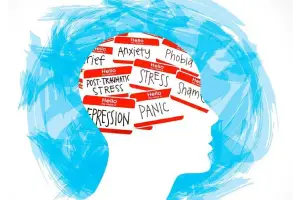Toxic positivity, a term gaining recognition in recent discourse, refers to the societal pressure to maintain an excessively positive outlook on life, dismissing or invalidating natural human emotions such as sadness, anger, or frustration. Psychotherapist Whitney Goodman first used the term “toxic positivity” in response to an Instagram post. This approach makes the case that the only path to success in life is to maintain an optimistic outlook consistently. It ignores everything that could arouse unpleasant feelings and concentrates only on the good things in life. It could seem like a good idea. But when it comes to human psychology, particularly for those in the medical field, things are more nuanced. However, the toxic positivity sounds contradictory and absurd. Is it possible to describe the word ‘positivity’ to define with an adjective like ‘toxic’?
Modern-day Thoughts on Toxic Positivity
The toxic positivity movement gets a boost at the very beginning of this current century. In 2009, Google recorded 1.92 million searches on ‘toxic positivity’ and ‘positive thinking’ which rose to 998 million in 2021. According to the Anxiety and Depression Association of America, toxic positivity also referred to as positive toxicity is an emotional phenomenon based on the thought that no matter what the situation is, even in the worst, people should maintain a positive mindset.
Preaching a Positive Psychology Is Doing Bad than Good
Toxic positivity is certainly not a recent idea or development. It was there but unheard and untold. There is a truth beyond the benefits of maintaining a positive mental attitude. Being positive in every aspect of life has social benefits and it is attractive to others. However, scholars have highly criticized the same for being too simplistic. Lucas Dixon, a University of Queensland Business School in Australia, said in his research paper in Psyche that it is indeed essential to understand positive psychology interventions are found to be most beneficial to people with healthy and stable mindsets. It means people struggling with life issues or psychological problems might not get the same benefits as their ‘positive’ counterparts. It is more harmful when ‘positive thinking’ is stretched to the extreme and considered the solution of any situation.
People may start to believe that their natural reactions towards life are somehow wrong, be it job loss or relationships.
Consequences of Faking Positive Thinking
With all the sentences like ‘think positive’, and ‘be happy’ around us, with picture-perfect lives on social media there is an absolute obsession with positivism. Though it appears to be seemingly unharmful, unknowingly we start faking positive thinking. Interestingly, while bottling up our true emotions, we adopt the same method while talking to others. Instead of motivating ourselves or others to display the truest form of emotions, we consciously encourage them to nullify the negative emotions.
A study published in the Academy of Management Journal has mentioned that people faking positive thinking or encouraging toxic positivity often show emotionally poor time and unstable mindset. Another study in the Journal of Experimental Social Psychology says that toxic positivity or faking positivity frequently may backfire. To make it simple, it is not ‘I am happy because I smile’ but it should be ‘I smile because I am happy’.
So how do we find the fine line?
Research says that positive affirmations can help people but accepting the opposite is equally beneficial. Other than keeping unrealistic goals, opting for commitment therapy and dialectical behaviour therapy is a better option. It will help build a more compassionate relationship with our inner experiences. Silencing the genuine struggles with excessive positivity is not the solution as it will mask the true emotions. It is good to emote and fine not to be fine.
References:
Toxic positivity: the pressure to always feel happy as a health care worker OPINION REVIEW by Evangelia Michail Michailidou
Can thinking positive go wrong? A mixed-method study of positive thinking at work. [Thesis] by Shafag Garayeva
‘Influencers and self-help gurus are preaching a form of positive psychology that risks doing more harm than good’ in Psyche by Lucas Dixon
A Multilevel Field Investigation of Emotional Labor, Affect, Work Withdrawal, and Gender published in Academy of Management ‘Not always the best medicine: Why frequent smiling can reduce wellbeing’ in Journal of Experimental Social Psychology by Aparna A. Labroo a, Anirban Mukhopadhyay, Ping Dong
